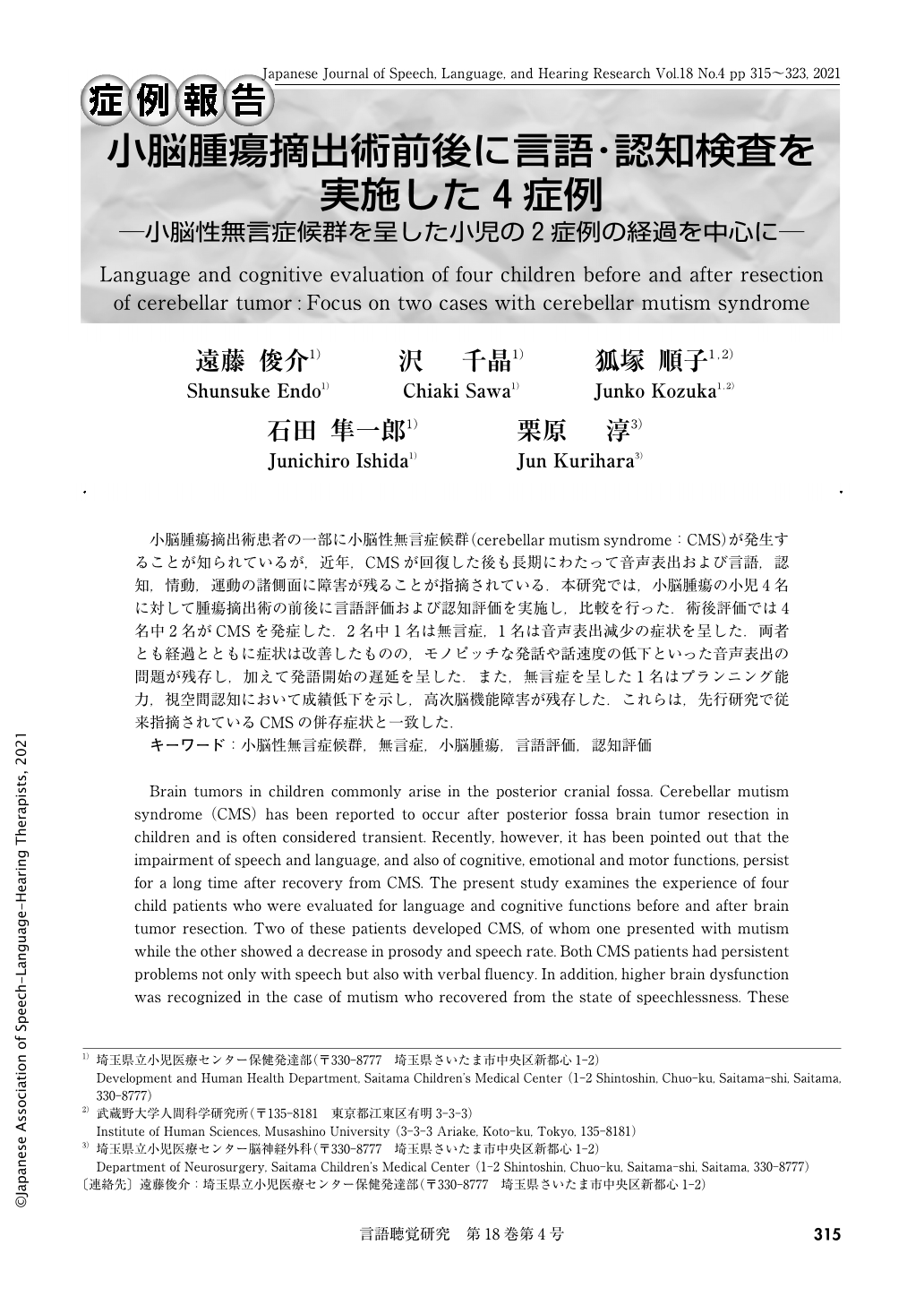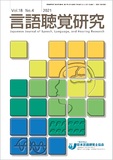Japanese
English
- 有料閲覧
- Abstract 文献概要
- 1ページ目 Look Inside
- 参考文献 Reference
小脳腫瘍摘出術患者の一部に小脳性無言症候群(cerebellar mutism syndrome:CMS)が発生することが知られているが,近年,CMSが回復した後も長期にわたって音声表出および言語,認知,情動,運動の諸側面に障害が残ることが指摘されている.本研究では,小脳腫瘍の小児4名に対して腫瘍摘出術の前後に言語評価および認知評価を実施し,比較を行った.術後評価では4名中2名がCMSを発症した.2名中1名は無言症,1名は音声表出減少の症状を呈した.両者とも経過とともに症状は改善したものの,モノピッチな発話や話速度の低下といった音声表出の問題が残存し,加えて発語開始の遅延を呈した.また,無言症を呈した1名はプランニング能力,視空間認知において成績低下を示し,高次脳機能障害が残存した.これらは,先行研究で従来指摘されているCMSの併存症状と一致した.
Brain tumors in children commonly arise in the posterior cranial fossa. Cerebellar mutism syndrome (CMS) has been reported to occur after posterior fossa brain tumor resection in children and is often considered transient. Recently, however, it has been pointed out that the impairment of speech and language, and also of cognitive, emotional and motor functions, persist for a long time after recovery from CMS. The present study examines the experience of four child patients who were evaluated for language and cognitive functions before and after brain tumor resection. Two of these patients developed CMS, of whom one presented with mutism while the other showed a decrease in prosody and speech rate. Both CMS patients had persistent problems not only with speech but also with verbal fluency. In addition, higher brain dysfunction was recognized in the case of mutism who recovered from the state of speechlessness. These findings are consistent with the comorbid symptoms of CMS noted in previous studies.

Copyright © 2021, Japanese Association of Speech-Language-Hearing Therapists. All rights reserved.


